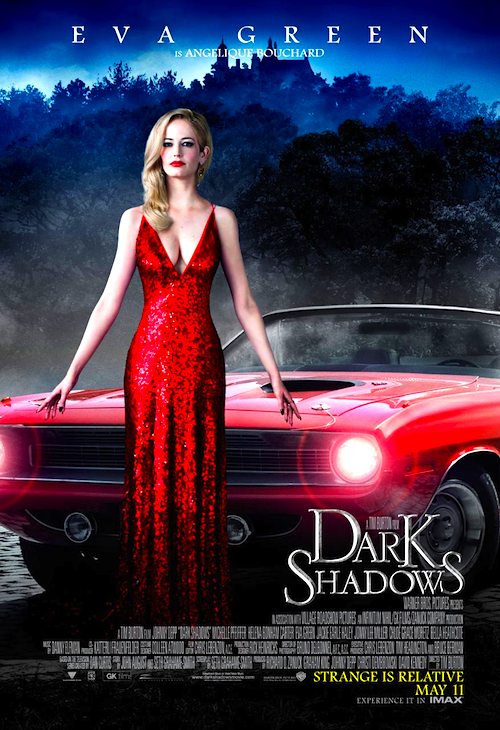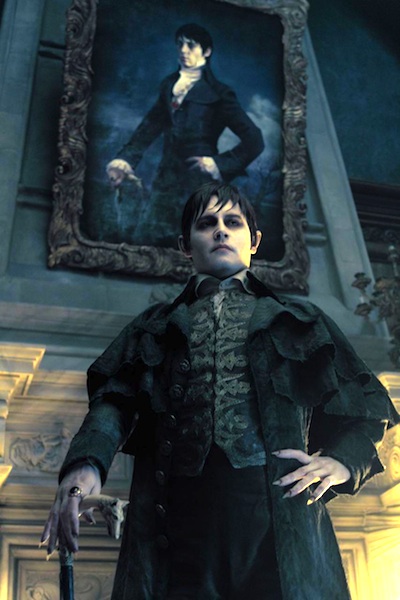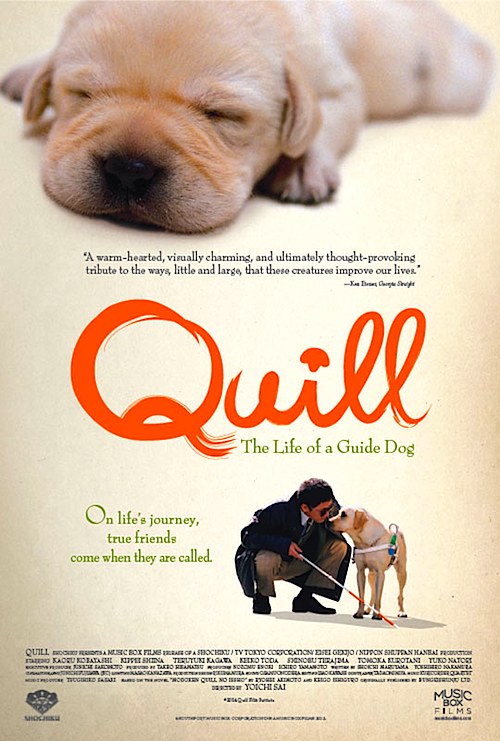 By Joe Bendel. Fans of The Adams Family get psyched. Tim Burton has revived your favorite franchise. He is calling it Dark Shadows now, but the goofy vibe remains the same. Die-hard devotees of the ostensive source material – Dan Curtis’s cult television show – might not be overwhelmed by the results, though. Burton and his regular repertory players certainly do their thing in the latest reboot of Dark Shadows, which is now playing widely throughout the country.
By Joe Bendel. Fans of The Adams Family get psyched. Tim Burton has revived your favorite franchise. He is calling it Dark Shadows now, but the goofy vibe remains the same. Die-hard devotees of the ostensive source material – Dan Curtis’s cult television show – might not be overwhelmed by the results, though. Burton and his regular repertory players certainly do their thing in the latest reboot of Dark Shadows, which is now playing widely throughout the country.
Barnabas Collins was the privileged son of an English fishing magnate, who built the coastal Maine town of Collinsport largely through his industry. Despite his fascination with the occult, the arrogant Collins spurns the love of Angelique Bouchard, a domestic servant who also happens to be a powerful witch. In retrospect, this was a mistake. Seething in fury, Bouchard bewitches Collins and his true love, compelling her to throw herself from the impossibly Burtonesque cliffs and turning him into an undead vampire.
Whipping the village rabble into a frenzy, Bouchard entraps Collins in a coffin, secretly burying him, so he can feel the anguish of his loss and unquenched thirst for all eternity. Then one fateful 1972 night, workmen discover Collins’ burial site. A spot of blood-letting and a liberal supply of fish-out-of-water gags soon follow.
It turns out the Collins family fortunes have suffered during the centuries Collins was away. Of course, the prodigal patriarch sets about righting matters, through the help of his supernatural powers. As per the rules of Tim Burton films, Sir Christopher Lee duly appears in a cameo as a salty dog sea captain falling victim to Collins’ mesmerism. Yes, that is one Burton tradition well worth maintaining.

Granted, Shadows looks great. Burton is clearly in his element when exploring spooky old houses and the 1970’s era wardrobe and soundtrack adds the right kind of kitsch. If only the script had benefited from the same attention to detail lavished on the banister in Collingwood, the Collins family manor. Instead, the story is really just a clothesline on which to hang Adams Family-style jokes, while Collins and Bouchard act like the Tracy and Hepburn from Hell.
As Collins, Johnny Depp basically does his shtick. In spite of viewer resistance, he gets laughs (particularly with his old school swearing invoking all manner of hellfire invective), but this is very definitely a one-note performance. At least Eva Green seems to get it. She is gleefully wicked as Bouchard. The fact that she looks like she was poured into her wardrobe does not hurt, either. Michelle Pfeiffer also looks great as Elizabeth Collins Stoddard, the living head of the Collins household. Still, aside from Depp and Green getting their supernatural groove on, the talented ensemble does not have much to do.
While the original cast members, including the recently deceased Jonathan Frid, briefly appear as party guests, the film’s truly inspired cameo features Alice Cooper as himself. Bizarrely, Burton tries to offer olive branches to the traditional fan-base by shotgunning about a half dozen of the revelations from the original show into the final climax. However, it would have worked much better had he sprinkled more of that plot throughout the film.
To some degree, Bruno Delbonnel’s dark and stormy cinematography, combined with Burton’s typically eccentric baroque sets and costumes, helps compensate for a thin screenplay and repetitive jokes. Overall, though, it is just a mildly diverting summer confection filled with empty cinematic calories. For Burton fans, it is now in theaters across the country, including the Chelsea Clearview here in New York.
LFM GRADE: C
Posted on May 15th, 2012 at 3:59pm.


